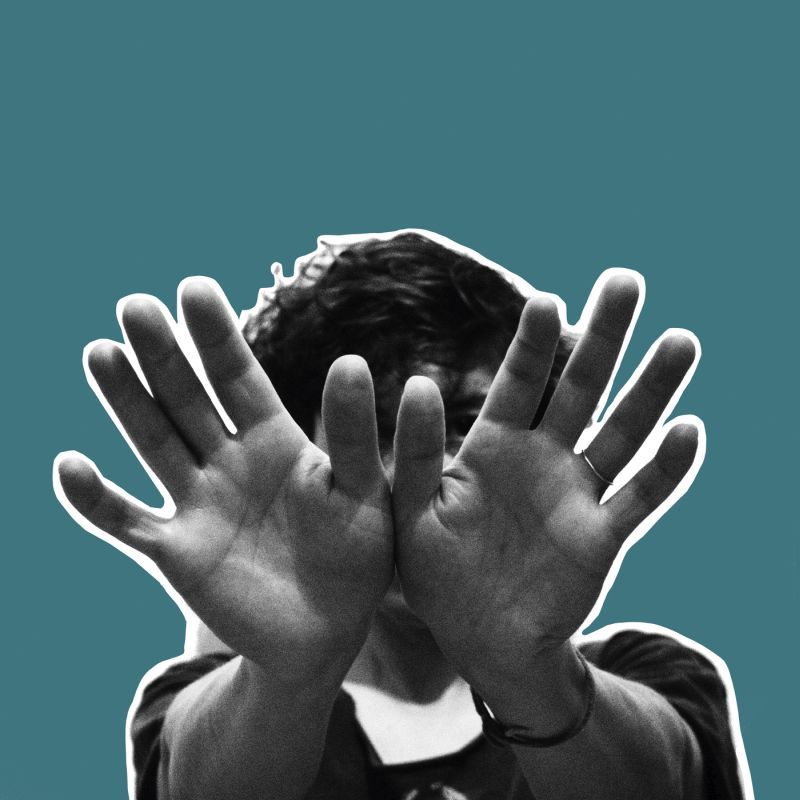tUnE-yArDs releases full-length ‘I Can Feel You Creep Into My Private Life’

tUnE-yArDs
I Can Feel You Creep Into My Private Life
4AD · January 19, 2018
Tune-Yards newest release is sonically intriguing, but fails when it attempts too much thematically by trying for advocacy and accountability and instead falling somewhere between ‘white savior complex’ and ‘performative allyship.
Tune-Yards first entered my radar in high school when their song “Gangsta” played at the end of an episode of Weeds. I immediately looked up the song because I was intrigued by the complexity and the way that frontwoman Merill Garbus’s incredible, authoritative voice melded with the band’s careful arrangements and mixing. It was unique, and years later, I still probably couldn’t tell you a band that sounds like Tune-Yards.
This complexity is probably what draws most people to Tune-Yards’ sound, and I did hear it on their newest album, I can feel you creep into my private life. It seems nearly impossible for Garbus to make music that isn’t distinctively her own, but that isn’t the problem with her newest release — it’s that a lot of it misses the mark of proper activism and crosses a line into feeling weird and performative. She probably says it best herself on the song ‘Colonizer’: “I use my white woman’s voice to interpret my travels with African men / I turn on my white woman’s voice to contextualize acts of my white women friends … I smell the blood in my voice.” In an interview with NPR, Garbus agrees that the song makes her “cringe” (her words, not mine), but that she feels it was a song she needed to make regardless. “I don’t know a lot about racial justice activism, about organizing or the ‘correct’ word to use politically,” she said. “That doesn’t mean that I get to be absolved from the responsibility to speak my experience.” She’s right that we all need to use our voices to fight white supremacy — especially those of us who are white, and therefore hold more power in the conversation — but is creating (and ultimately profiting off of) an album the correct venue to do so?
I would love to hear Garbus’ voice uplifting musicians from much more diverse ethnic backgrounds than we commonly see represented in ‘indie’ music. And I agree with her that music in 2018 is, at its heart, colonialist, in the way that we are constantly observing Caribbean and African music and rhythms leak into our popular subconscious as they are revised for a white, American audience (I think most recently of Drake’s use of dancehall in More Life). I think it is odd to see Garbus so passionately denounce such music as colonialist, and yet still continue to profit off of these cultures herself by incorporating dancehall, R&B, and more global rhythms in her own work. On the album’s third song, ‘ABC 123,’ Garbus proclaims, “I ask myself what should I do, but all I know is white centrality,” and I think that really comes through, here.
How is a white person — who Garbus would agree can never be exempt from participating in white supremacy regardless of the number of ‘anti-racism workshops’ they’ve attended like she has — going to have anything significant to add to this conversation other than using their platform to give space to those who she claims to speak for? Shouldn’t she be, you know, collaborating with Caribbean and African artists on the album, and amplifying their voices instead of hers? If Garbus wanted to make an album denouncing the colonialism of music, perhaps she shouldn’t participate in it herself. It feels similar to watch Hollywood actors denounce sexism and sexual harassment while wearing a ‘Time’s Up’ button to gain fans and influence, and then receive allegations a week later for harassment. Garbus is still benefiting off of white supremacy — but now she can profit from it as well.
That all being said, the album itself is fairly entertaining to listen to, but still falls short compared to some of the brilliant vocal arrangements on 2011’s W H O K I L L and 2014’s nikki nack. That’s not to say that I can feel you… isn’t inventive on its own merit: ‘Coast to Coast’ features a bassline created from a ukulele put through various pedals and a delay, as well as Garbus’s impressive vocal capabilities. In fact, a lot of the band’s previous interests — heavy use of sequencers, clattering percussion, and vocal filters — come through in I can feel you…, as well as some newer elements, such as jazz saxophone, piano and a prominent techno influence. It makes for an overall enjoyable listen, but the themes sit uncomfortably below the surface as a reminder of the strange colonial and self-aggrandizing nature of the album as a whole.
I didn’t hate this album. In a lot of ways, I think it has something valuable to say, in at least starting the conversation on race and the global nature of music. There are some really fascinating arrangements, and Garbus’s voice stands out just as much as ever. I just wish it’d started the conversation it wants to start in a way that gives people of color and ethnic populations a little bit more of a voice. 3/5